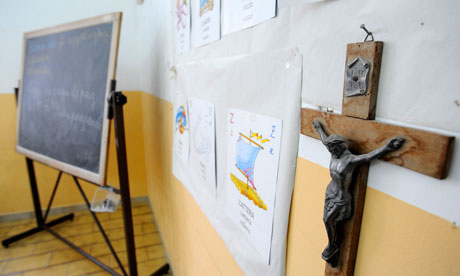The European relationship between religion, law and politics is a strange creature. Religious influence over political life is weaker in Europe than in almost any other part of the world. To adapt the phrase first used by Alastair Campbell when he was spokesman for the British prime minister Tony Blair, politicians in Europe generally ‘don’t do God’. The EU’s Eurobarometersurveys of public opinion suggest that religion has a very limited impact on the political values and behaviour of European voters. Europe has no equivalent to the politically powerful religious right in America, nor to the theological debates in the political arena that one sees in many Islamic countries.
Recently, however, this long-standing distance between religion and politics has been threatened. Migration is one factor that has helped religion to return to centre stage in public life. While Muslim minorities have protested over questions of blasphemy and free speech, Catholic leaders have intervened in political debates about gay marriage and abortion, and conservatives have lamented that European societies are losing touch with their Christian past. The political scientist Eric Kaufmann has argued that religious believers have a demographic advantage in birth rates that will see Europe’s secularisation reversed by the end of this century.
Religious justifications for terrorism might be the most visible and dramatic threat to liberal states from increased religiosity, but the separation of religion and politics has recently been challenged in multiple ways and in many countries, not just in Europe. Both the US and Canada have experienced controversies over the attempted use of religious law in family arbitration, while Islamic leaders in Australia have provoked intense debate after giving sermons denouncing gender equality. However, the renewed visibility of religion in public affairs provokes particularly intense challenges in Europe since it undermines well-established, but often tacit, conventions on the limits to religious influence on public life. Continue reading
Sources
- Aeon Magazine
- Image: Mystagogy
Additional reading
News category: Features.




